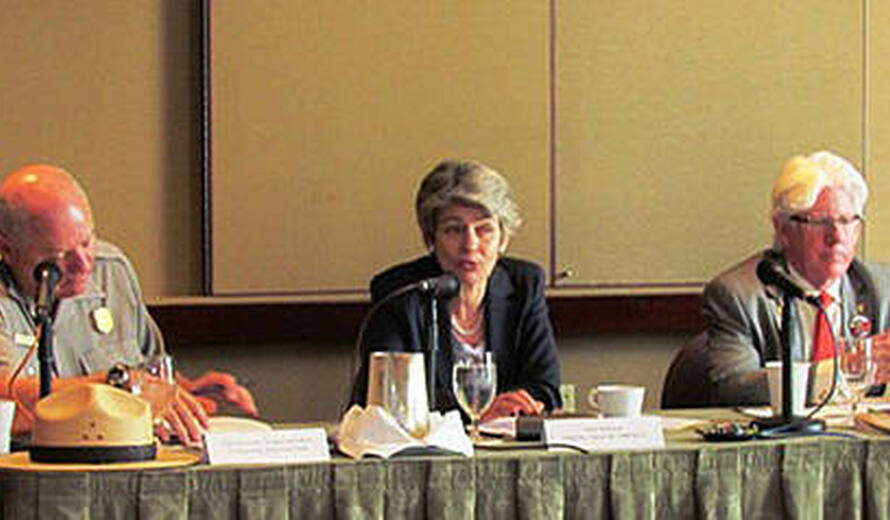World Heritage and Sustainable Tourism Top Agenda in Miami Leg of Director-General’s Mission to the U.S.
With a stunning visit to the Everglades the day before serving as a strong reminder, Director-General Irina Bokova turned her attention to a private-public sector roundtable on World Heritage and Sustainable Tourism in Miami on Monday. Joining a panel of local leaders in the tourism industry and conservation, the Director-General highlighted the importance of better integrating cultural heritage preservation, sustainable tourism and local communities, pointing out that cultural heritage is a powerful driver for social and economic development at the community level.The Director-General was mindful of the efforts undertaken at the Everglades National Park, a World Heritage Site since 1979, to integrate it into the lives of young people and their parents by serving as both a place of learning for thousands of school-age children and an economic driver, creating jobs that support the local economy. “It is important that there be a comprehensive approach to heritage preservation in its various forms, be it natural, cultural or intangible heritage, in order to educate younger generations to the need to preserve it, not just as a historical legacy but as a living and fundamental component of our lives and communities,” she said.
William Talbert III, president and CEO of the Greater Miami Convention and Visitor’s Bureau backed up the Director-General’s comments with eye-opening statistics on national and local tourism. “International tourists make up 70% of all tourism in the United States,” Talbert said, “and Miami alone saw a 9% increase in foreign visitors last year.”
The Director-General’s visit to the U.S. in this 40th year of the World Heritage Convention is particularly poignant as the inspiration for the Convention was drawn from the National Park Service’s system of preservation of the country’s natural and historic heritage. “I want to pay special tribute to Russell Train,” Mme Bokova said, “one of the authors of the convention, former administrator of the Environmental Protection Agency, and founder and chairman emeritus of the World Wildlife Fund.”
Within this acknowledgement, the Director-General invited also the U.S. to ratify the UNESCO 2003 Intangible Cultural Heritage Convention.
The Everglades is currently on the World Heritage List in Danger. Irina Bokova commended the National Park Service for making a strategic decision to this effect and for using it to raise the alarm about serious challenges that face the Everglades, some of which date back to the 19th Century when canals were dug to drain the swamp hoping to turn it into arable and buildable land. There is now a $20 billion, 20-year plan for restoration at the park.
The UNESCO World Heritage Sustainable Tourism Program focuses on linking up national and local authorities, the tourism sector and local communities to create an integrated approach to sustainable tourism within the context of the World Heritage Convention. A critical element of this initiative is providing stakeholders with the capacity and tools to plan, develop and manage World Heritage responsibly and sustainably, based on the local context and needs.
Also serving on the panel was former Assistant Secretary of the Interior Nathanial Reed, Mario Goderich, assistant director of the Miami Dade County Office of Sustainability, Planning and Economic Development and Everglades National Park Superintendent Dan Kimball.
The Director-General’s six city mission to the U.S., from 13 to 25 March, includes stops in Washington, Philadelphia, Chicago, Miami, San Francisco and Los Angeles.
